Shifting the lines of coffee perception
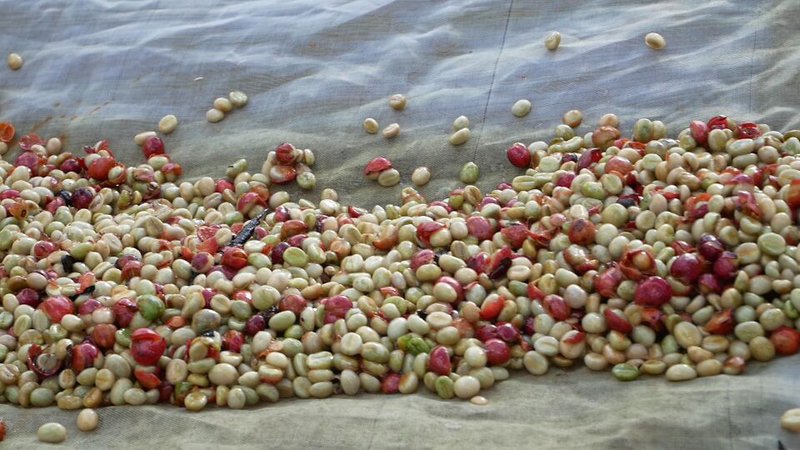
Why robusta coffee has a chance to stand out of the specialty coffee scene?
As we were discovering the various shapes and flavours of Ugandan coffee, we couldn't miss the opportunity to learn more about robusta.
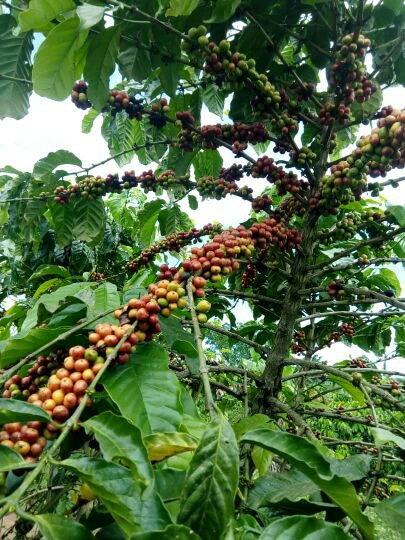
Robusta is genuine from Uganda and represents 80% of the coffee production. Wherever you go in the low tropical lands of the countries, you'll see here and there robusta coffee trees in gardens or fields. It is part of the country landscape and traditions.
It's also an important economical resource for many families around the country. May they be simple seasonal pickers contracted during the harvest to collect coffee cherries or small farmers, owners of a few acres and processing their own coffee.
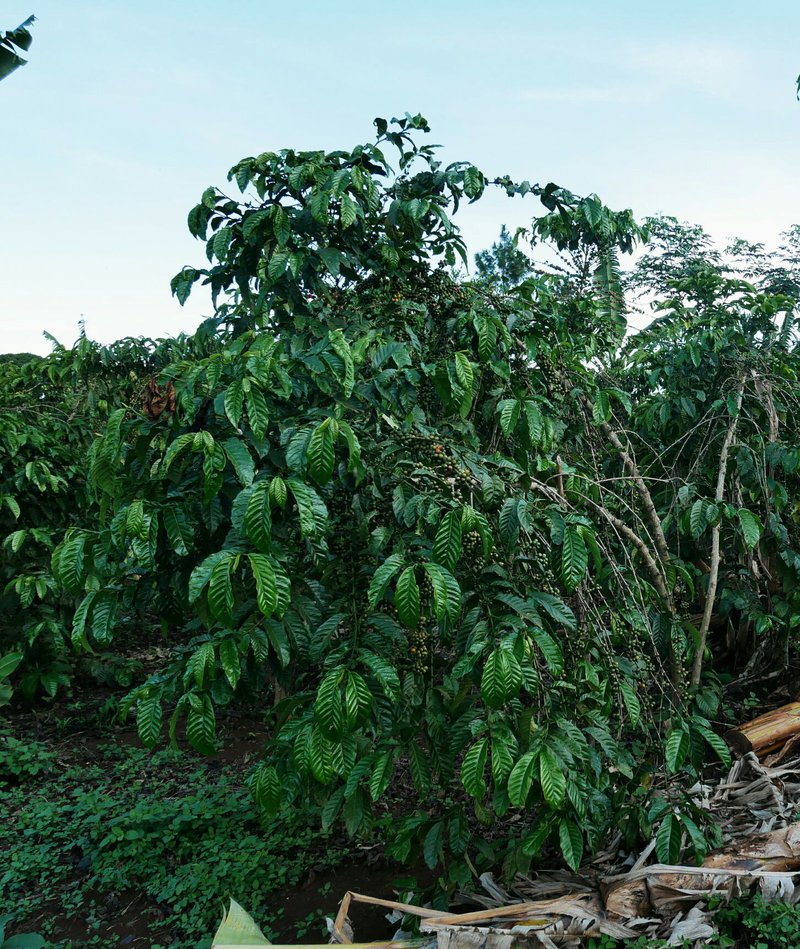
There are also huge kind of coffee estates, with hundreds of thousands of coffee trees in such a wide area that you could feel in a "little Brazil" kind of farm, big exploitations that look like mere tools to deal with heavy volumes.
Traditionally, robusta coffee in Uganda is prepared under natural sun-dried process with coffee cherries put to dry directly on the floor or on canvas until reaching the sufficient level of humidity (12%) to be sent to the miller for husking.
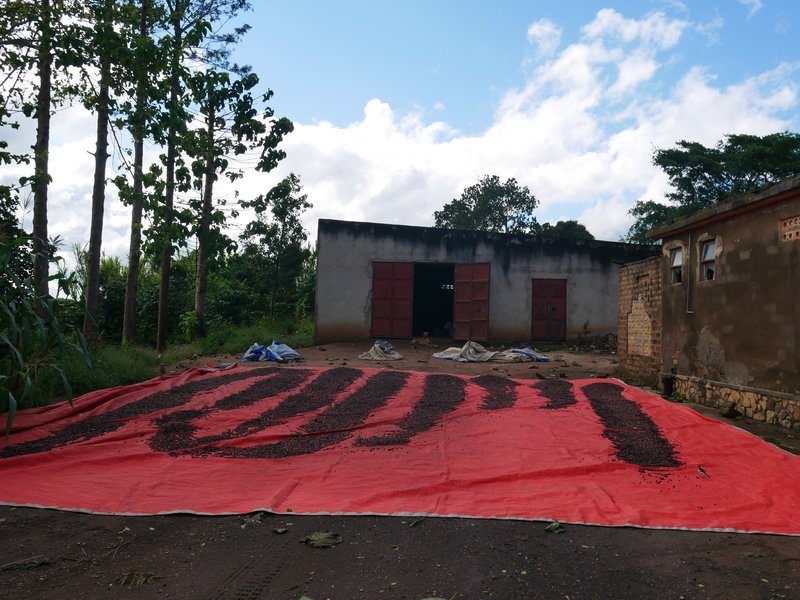
Among this traditional landscape, we had the chance to meet a small producer, Stephan Katongole, whose farm is located in the district of Sembabule at about 1,250 m.a.s.l.
Although it looks pretty unusual, robusta trees can survive at this high altitude and are even in pretty good shape there!
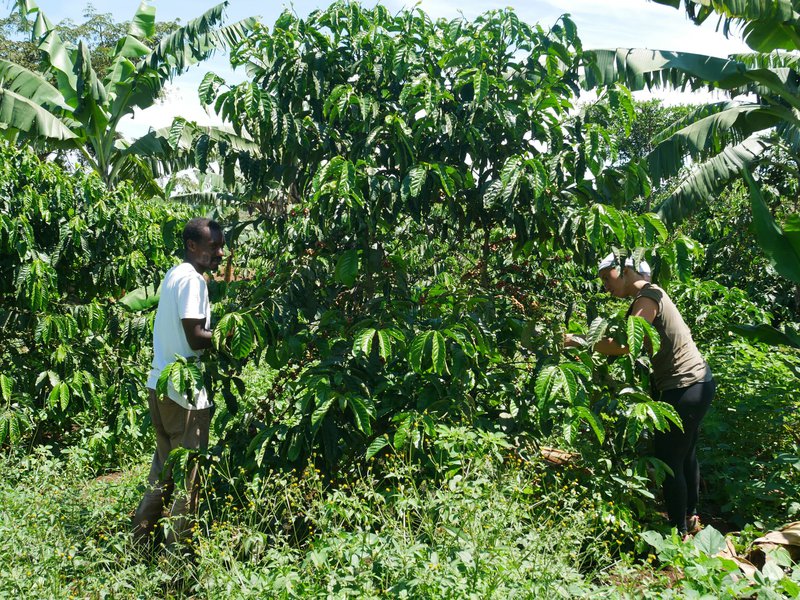
We arrive in Stephan's farm during the harvest time and to see trees full of cherries at different levels of ripeness.
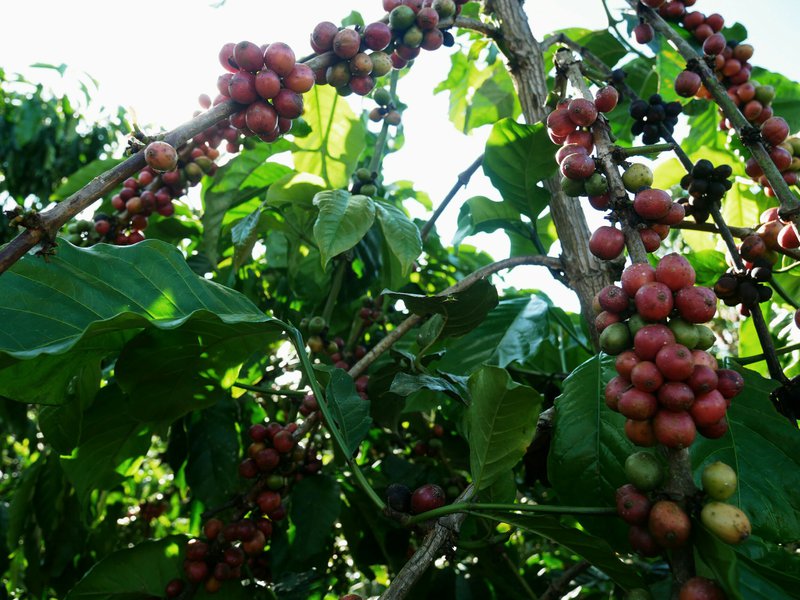
During the few days we're gonna spend there, we'll have the chance to see and participate to different tasks on the farm from the selective, exigent and time-consuming picking of red ripe cherries up to the fully-washed process of the beans.
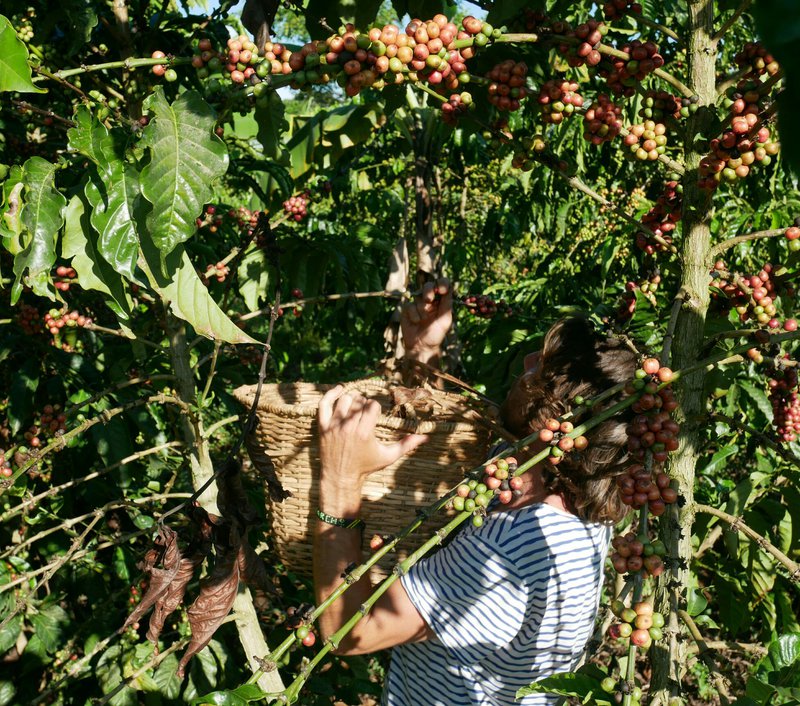
Fully-washed, you read it right!
When Stephan took over the family farm 7 years ago, he decided to start producing coffee differently. To face the difficulties of reaching the international market and to compete against big companies as a small farmer, there was only one way out: to do something better and different!
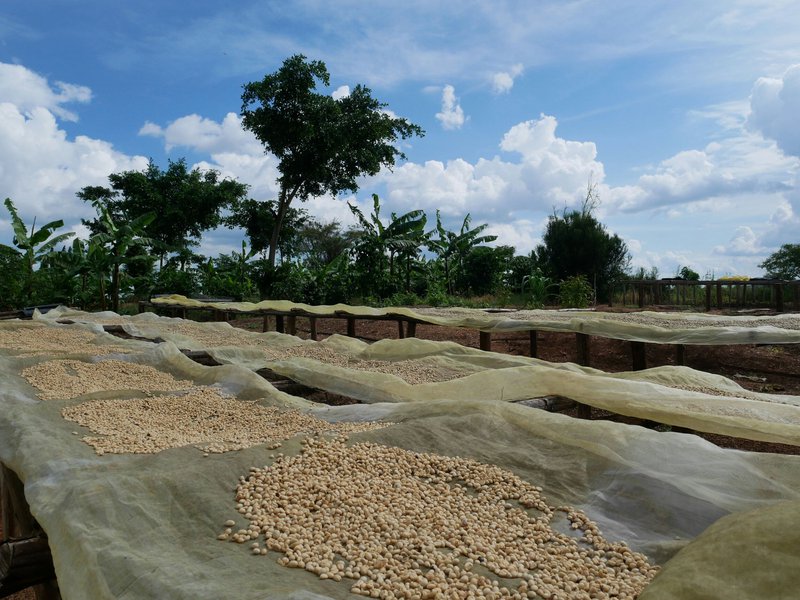
And that's how he started, little by little, moving from hand to eco-pulper...
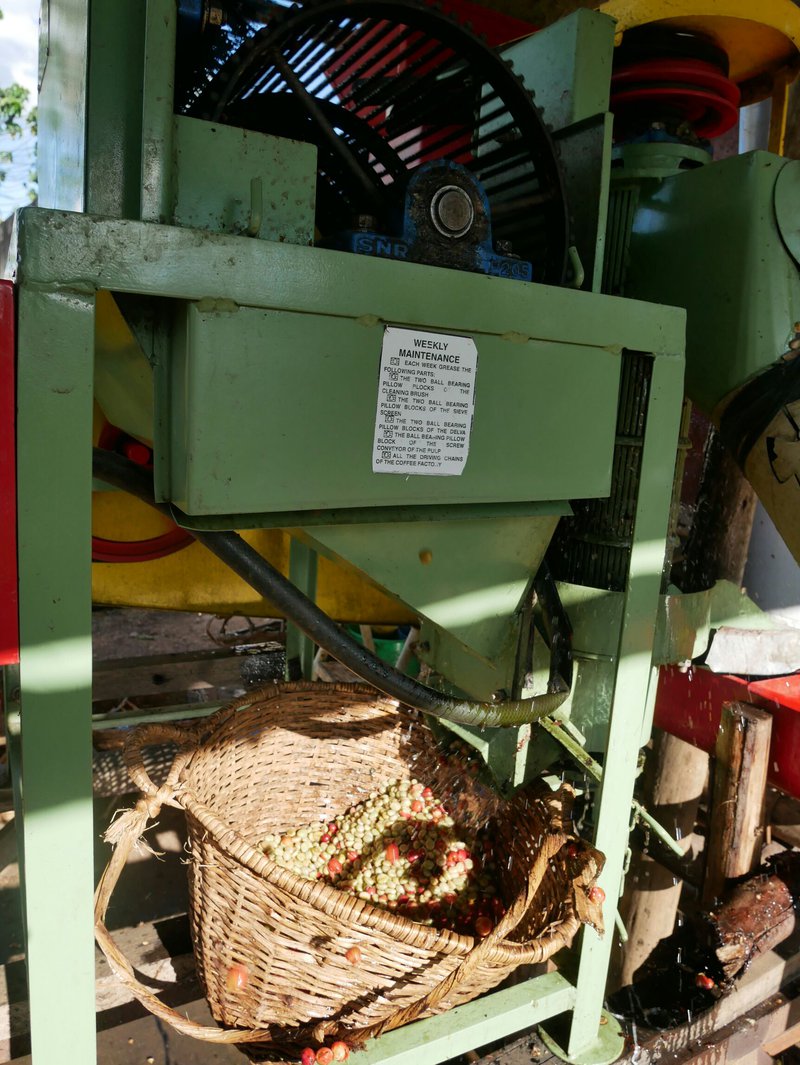
fermentation tanks after after drying tables,
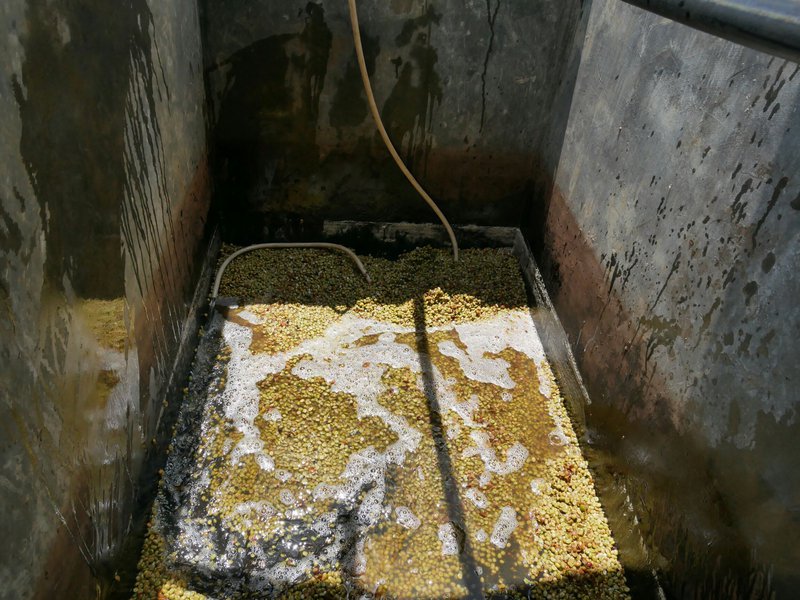
to produce a fully-washed robusta.
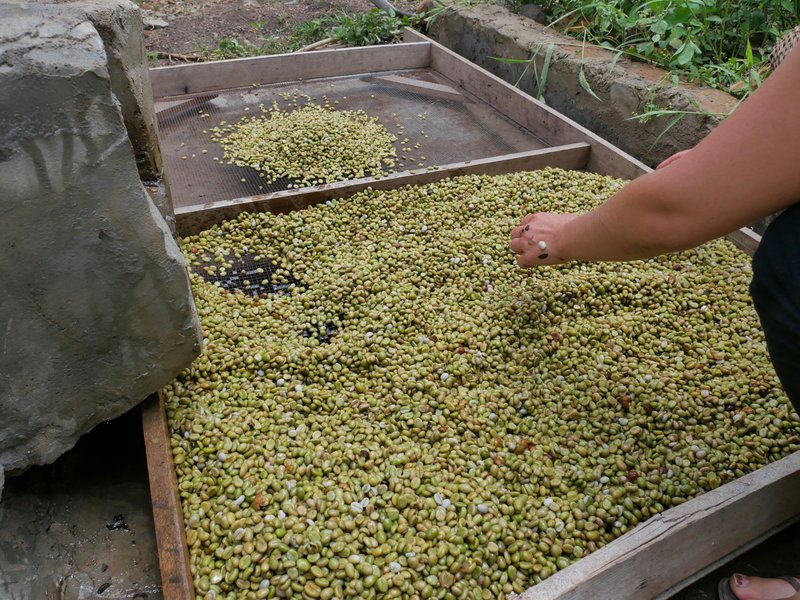
Stephan might not be the first, but for sure he's a pioneer in Ugandan story of fine quality robusta. So that's how was born, under his brand Coffeeyouknow, one of the first single origin fully washed robusta.
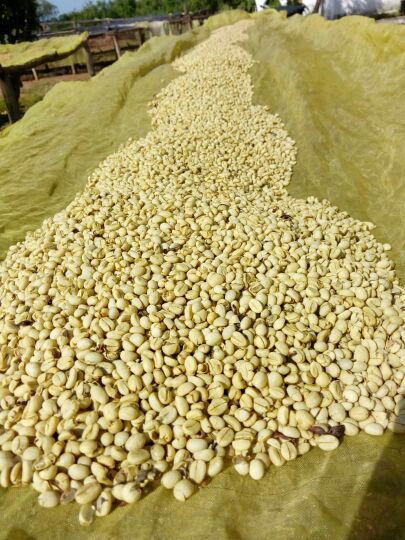
The result in cup is absolutely stunning, especially for a pure arabica connoisseur.
First of all, you'll find nothing of the traditional bitterness of the low quality robusta.
It's actually totally the contrary... From the first sip, you're really struck by the sweetness and cleanness of the cup.
The balance and constancy are its other strengths. It has clear notes of milk chocolate, roasted hazelnuts (praliné kind), sugar cane (panela), dulce de leche and even liquorice with very light acidities of red apple. A dense and creamy body with a long and fruity aftertaste. It seems like it would make a great single origin espresso.
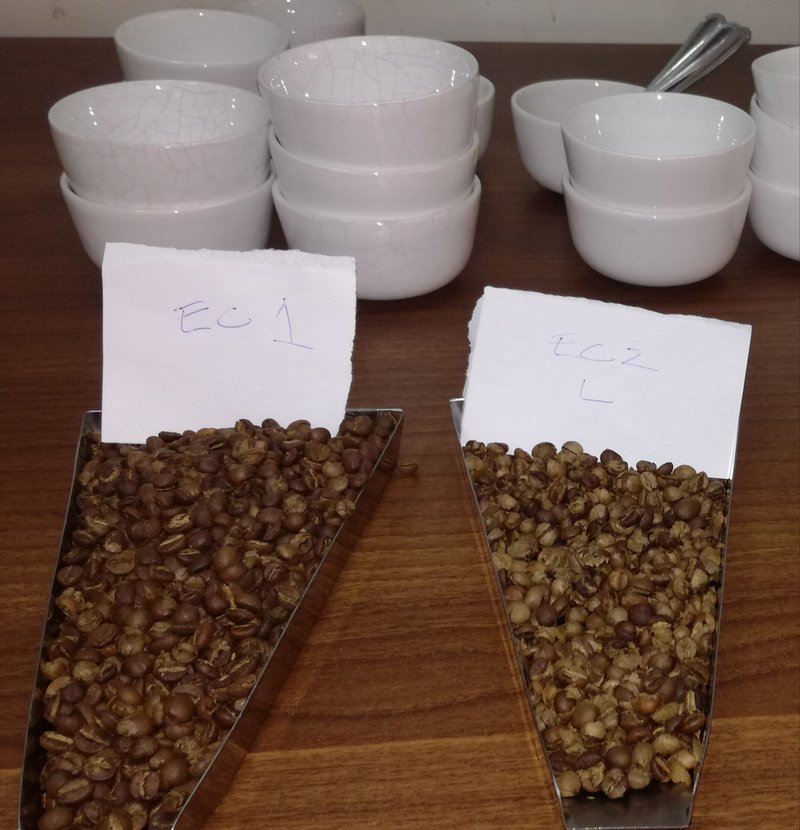
To be honest, when I arrived in the farm the very first day, I was a bit afraid of my own prejudices and consideration of robusta coffee. I'm so used to arabica taste that I wasn't even sure I'd be able to appreciate robusta. But I actually liked it so much that I will probably become one of its main defendant from now on :-)
It also leads me to puzzle the basis of what makes a good coffee.
Varieties for sure bear their own shapes and characteristics. Arabica and Robusta will never be the same.
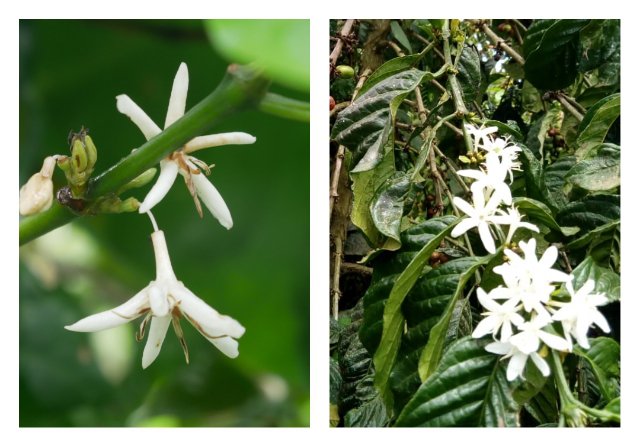
But let's not forget that coffee is part of a whole (eco) system. The final result on the cup depends on so many parameters and obviously the terroir, the agricultural practises, the selectivity of the cherries, the control of the post-harvest process, the storage etc... have the greatest impact on the quality of a coffee.
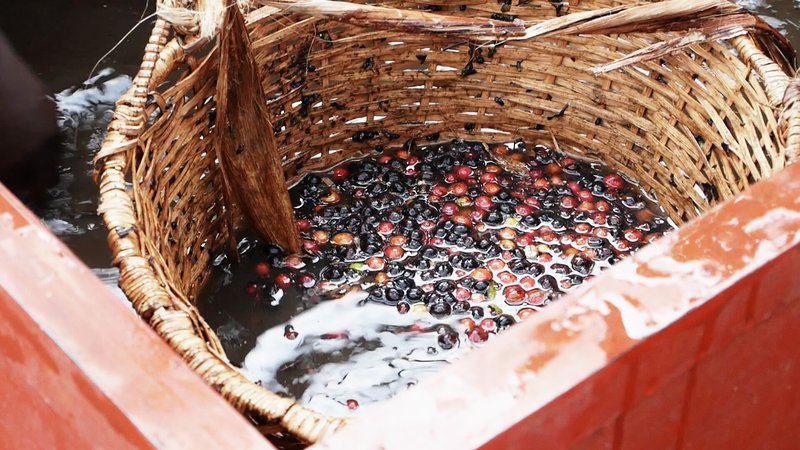
Blaming the robusta and treating it as unworthy or gross just because the majority of the market care even less of its quality than for the holy fine arabica, is just in the end being narrow-minded.
Every coffee regardless of its variety should have a chance to stand in our cup and to give the best surprises to our refined palate.
Standing for non-discrimination among coffees, I will now wait patiently for Stephan's new honey processed robusta to be ready for cupping!
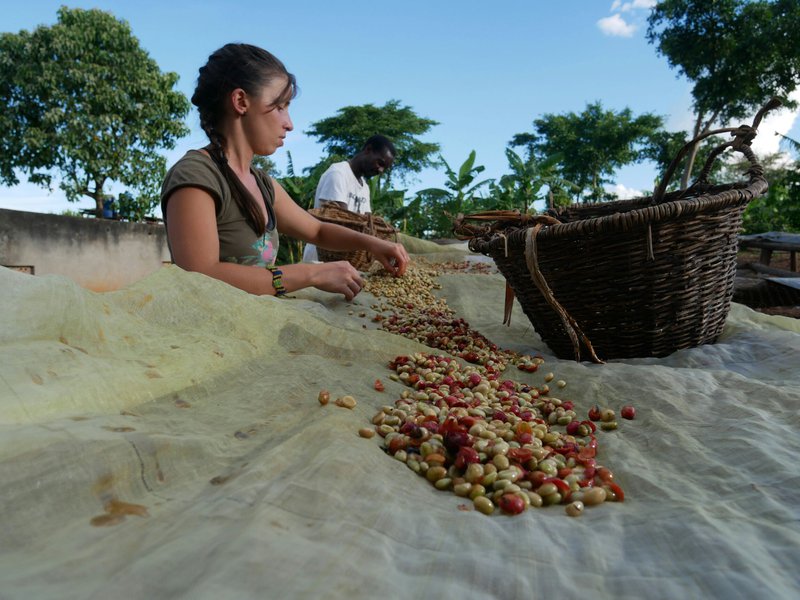

 Uganda
Uganda Colombia
Colombia Ethiopia
Ethiopia Guatemala
Guatemala Indonesia
Indonesia Kenya
Kenya Mexico
Mexico Philippines
Philippines Tanzania
Tanzania